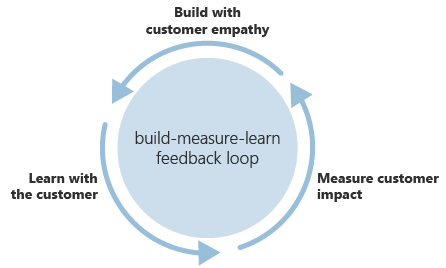How the Fastest Growing Startups Use the Scientific Method to Scale
Question, Research, Hypothesis, Experiment, Data Analysis, Conclusion, and Communication
Remember these steps from being a child in school? Or perhaps from your early days in university?
Across the globe, science curriculums have taught these steps, or a similar variation of them, to millions of students each year. They are foundational to every STEM curriculum and are drilled into students from an early age.
The important question for founders is: are you are still using these steps each and every day?
If the answer to that is no, then it might be time to rethink your approach. This method has been adapted and shifted over the years, famously coined as the “build-measure-learn” loop in the startup world.
If this is your first time hearing of this concept, I highly recommend reading The Lean Startup by Eric Ries. This book, referred to many as the startup bible, goes into this loop and how to implement it at your company.
This style of thinking becomes critical as startups implement their strategies at scale.
When developing a product strategy, it is important during each and every step to pause for a moment and think about how you can test components along the way. This might seem like it would cause your startup to move slowly, however, we find the opposite to be true. Implementing scientific thinking and testing during every step of strategy development allows founders to move extremely fast by not letting “perfect be the enemy of good”.
So often founders struggle to develop product strategy because they strive for perfection or become hung up on a singular unknown.
Utilizing the build-measure-learn feedback loop doesn’t just have to be utilized during product development. In this instance, it can be utilized prior to ever writing a line of code. What this looks like in our engagements is that as we develop strategy alongside our clients, we are very attentive to understanding where we have unknowns or assumptions and track each of these along the way. For each item, we develop a testable hypothesis which helps our clients to move through the initial strategy development phases without being blocked as unknowns arise. Documenting these and putting a framework in place to test and adapt the strategy as we learn is what helps strategy evolve over time.
At Peak Product Group, we usually refer to this as “hypothesize in hours and refine over time”. We believe it is central to successful refinement of strategic thinking and something we have used in our own startups and with clients to achieve product market fit. Rarely does a company find product market fit on their first attempt but with this style of thinking and development they can take the steps needed to find it over time.

